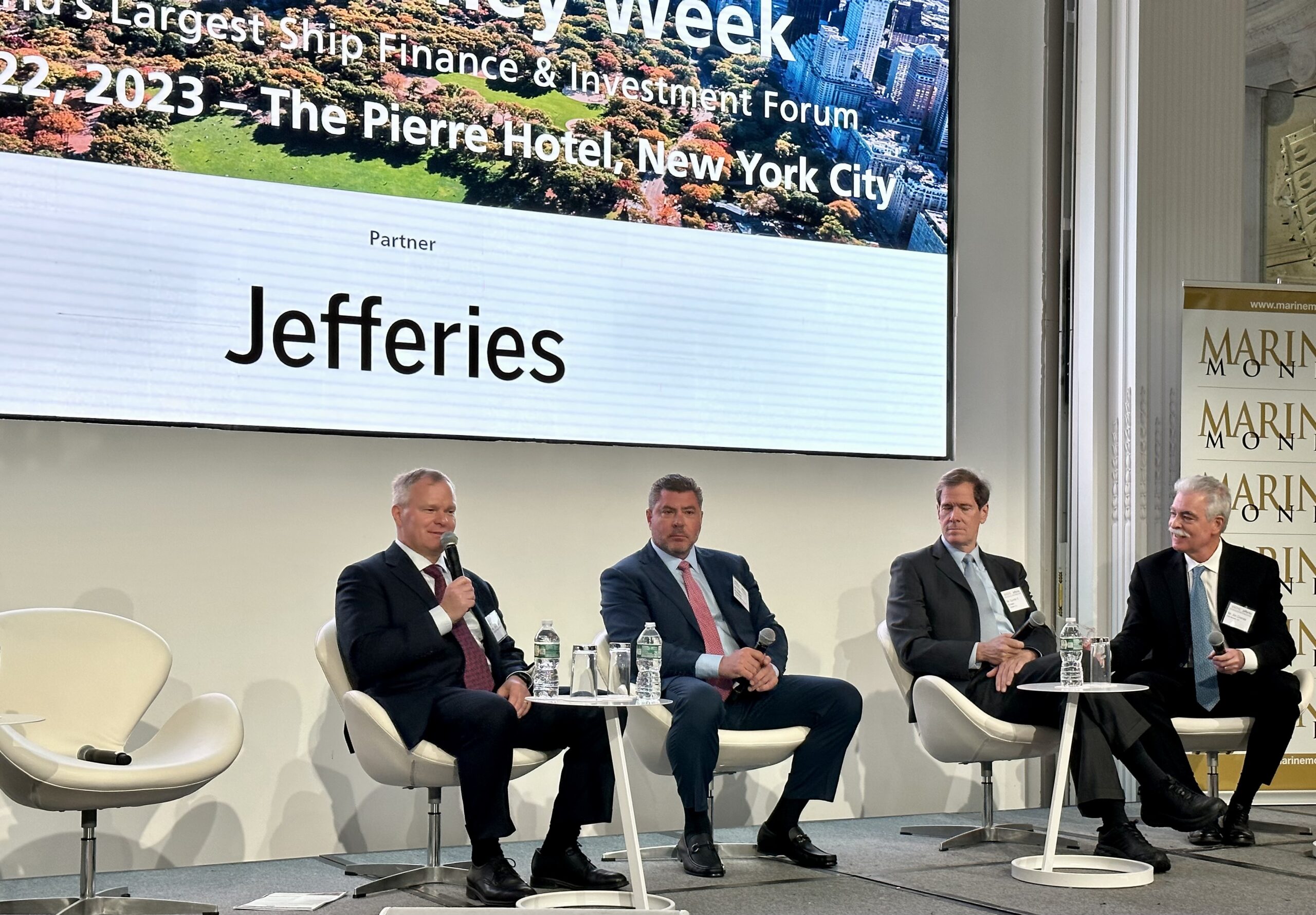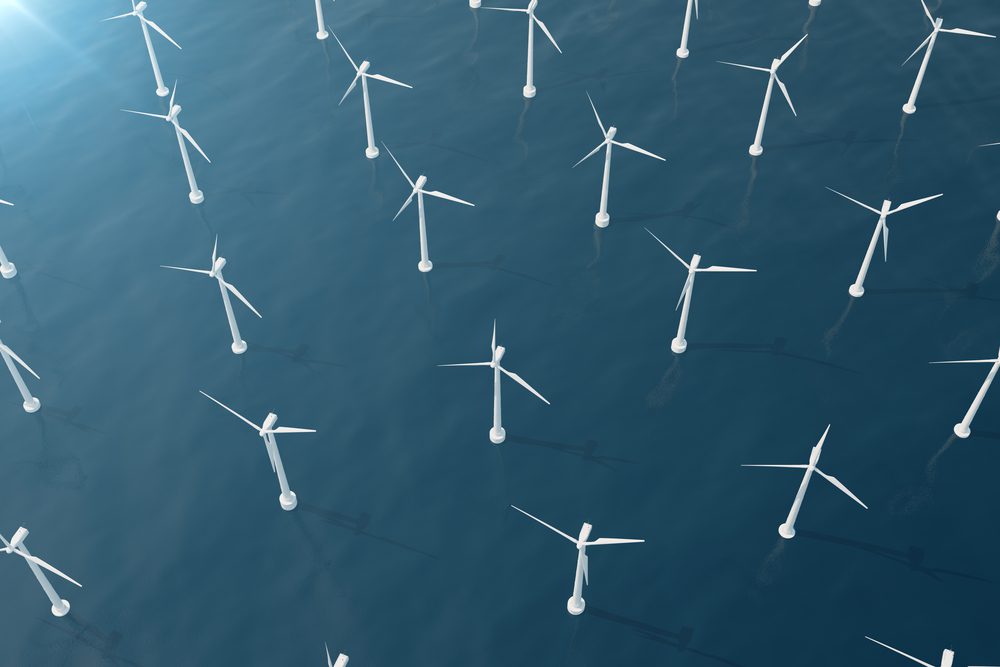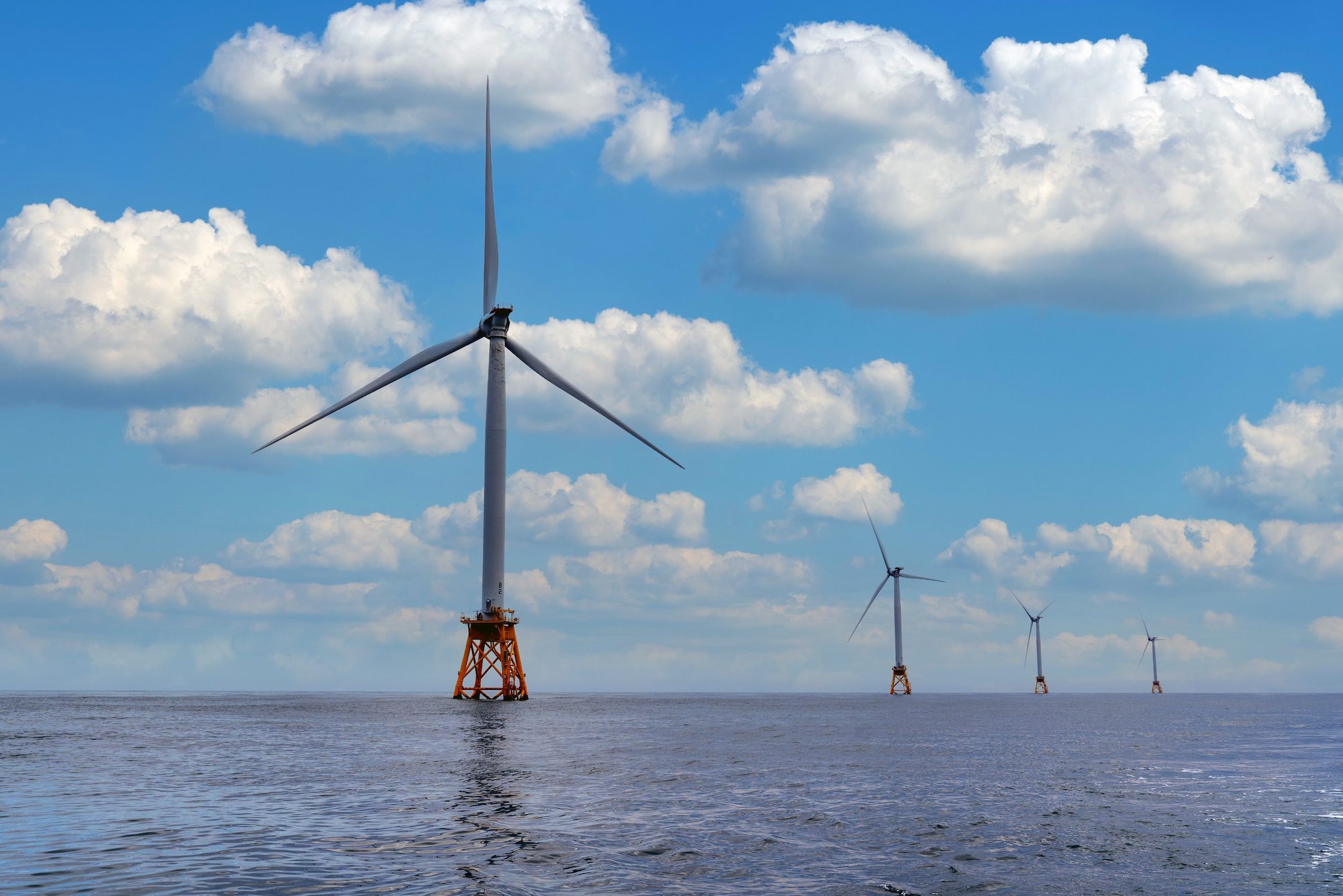by Captain John Konrad (gCaptain) Todd Hornbeck, the CEO of Hornbeck Offshore, recently delivered a talk at the Marine Money Week Conference in NYC. He presented an optimistic outlook for the offshore supply vessel (OSV) market, stating that its dependency on the oil industry is fading as it expands into wind energy and military sectors.
Highlighting the cyclical nature of the OSV industry with the ability of customers to renegotiate contracts during offshore bust periods, Hornbeck discussed the potential for longer-term stability by looking outside the oil sector. He emphasized the enduring stability and a large number of opportunities associated with long-term military contracts. His company’s equipment, he noted, is easily adaptable for diverse military uses, making it a cost-effective option not just for the U.S. Navy, but for militaries around the globe.
Hornbeck also shed light on the discrepancy between macroeconomic views and ground realities. Despite worries about geopolitical instability, economic downturns, and declining commodity prices, he noted an upsurge in demand and an increase in long-term OSV contracts from the wind industry, military, and oil majors.
While discussing rising geopolitical threats worldwide, Hornbeck pointed out the dwindling and aging U.S. Navy fleet. This, he argued, has prompted the military to increasingly rely on the Merchant Marine and vessels like theirs. “With escalating global threats, the need for the US Merchant Marine and for commercial operators to bolster the US Navy’s position is paramount,” he asserted.
On the topic of challenges, Hornbeck expressed concerns about the availability of low-cost capital for risk-taking. He emphasized that offshore oil customers, in order to compete with the military and wind industry for a limited number of available vessels, must commit to long-term, non-cancelable contracts that guarantee a fair rate of return. Alternatively, they should provide the capital necessary to build their own ships, thus reducing their expenses.
Also Read: Hornbeck Offshore OSV to Support U.S. Navy Operations in the Atlantic
The CEO further emphasized the importance of service companies maintaining robust balance sheets to manage the industry’s inherent volatility. He maintained that returning capital to shareholders should only be considered after consolidation, boosting earnings, lowering debt, and ensuring sufficient capital reserves to withstand significant downturns.
Hornbeck’s forecast for the future was positive. He pointed to the growing demand from wind and military sectors, increased oilfield requirements, and the high entry barriers due to costly new builds as reasons for his optimism. He encouraged service companies to recognize their worth in this volatile market and to engage more proactively with military planners.
Hornbeck concluded with a note of caution, predicting unforeseen challenges in the wind industry over the next five years, akin to those encountered in deepwater exploration, and fast-growing military and geopolitical concerns globally. Despite these potential hurdles, he expressed enthusiasm for the future, noting that energy demand will continue to rise. The flexibility of vessel companies to adapt to various industries and to address military operations and logistics issues positions the OSV market as a compelling investment prospect.
Despite the importance of Marine Money Week – the premiers ship and shipbuilding finance conference – there were noticeable absences – no U.S. Navy officers or civil service NAVSEA or U.S. military procurement leaders were in attendance. While it’s commendable that the U.S. Navy is expanding its horizons by collaborating with commercial companies like Hornbeck, who offer an array of capabilities at a fair price, critics express concern over the Navy’s minimal participation in such industry events. This lack of engagement, coupled with a deficiency in up-to-date ship finance knowledge, has been identified as a significant contributor to the Navy’s ongoing struggle to deliver shipbuilding projects on schedule and within budget.
Also read: US Navy Shipbuilding Is Failing Because Admirals Avoid Wall Street

 Join The Club
Join The Club











